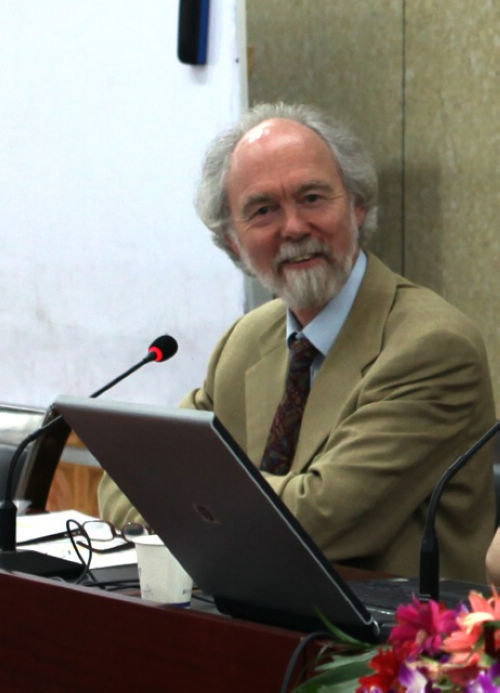讲座一:The Logic and Contradictions of ‘Peaceful Rise/Development’ as China’s Grand Strategy?
时间:2014年4月14日(星期一),19:00-20:30
地点:紫金港校区蒙民伟楼250 (Zijingang Campus, Mengminwei Building, 250)
The argument is that China does not need to invent a grand strategy because it has already articulated one that is based on a home-grown idea: ‘peaceful rise/development’ (PRD). The key issue is whether the logic of this grand strategy, and the contradictions within it, are fully understood, and whether China has sufficient depth and coherence in its policy-making processes to implement such a strategy. Although there are elements of longer continuity in China’s strategic outlook, most obviously in seeing itself as a central player in world politics, this study focuses on the period since the late 1970s. The transformation around that time from Mao’s revolutionist strategy to Deng’s strategy of reform and opening up, involved a radical shift in China’s perception of itself, the world, and its place in the world. That shift provides a fairly stable and coherent background against which to think about the ends and means of China’s grand strategy. The paper looks briefly at the concept of grand strategy, and more specifically about how PRD qualifies for that status. It then surveys the ends and the means of China’s foreign and security policy as they have evolved in practice and rhetoric, and assesses China’s practice against the logic of PRD. The conclusion is that China’s practice is contradictory in relation to the requirements of PRD, and that these contradictions are endangering the viability of the strategy.
讲座二:Geopolitics and Geo-economics in the Emerging World Order
时间:2014年4月18日(星期五),9:00-11:00
地点:紫金港校区 西3B-112,社会科学研究院会议室
(ZU Zijingang Campus, Xi 3-B Building, Room112)
The two centuries old hegemony of the West is coming to an end. The ‘revolutions of modernity’ that fuelled the rise of the West are now accessible to all states. As a result, the power gap that developed during the nineteenth century and which served as the foundation for a core-periphery international order is closing. The result is a shift from a world of ‘centred globalism’ to one of ‘decentred globalism’. At the same time as power is becoming more diffuse, the degree of ideological difference among the leading powers is shrinking. Indeed, because all great powers in the contemporary world are in some form capitalist, the ideological bandwidth of the emerging international order is narrower than it has been for a century. The question is whether this relative ideological homogeneity will generate geoeconomic or geopolitical competition among the four main modes of capitalist governance: liberal democratic, social democratic, competitive authoritarian and state bureaucratic. This article assesses the strengths and weaknesses of these four modes of capitalist governance, and probes the main contours of inter-capitalist competition. Will the political differences between democratic and authoritarian capitalists override their shared interests or be mediated by them? Will there be conflicting capitalisms along the lines of the early part of the twentieth century? Or will the contemporary world see the development of some kind of concert of capitalist powers? A world of politically differentiated capitalisms is likely to be with us for some time. As such, a central task facing policy makers is to ensure that geoeconomic competition takes place without generating geopolitical conflict.
主讲人简介:

巴里·布赞(Barry Buzan)教授是英国社会科学院院士、伦敦政治经济学院IDEAS高级研究员。是国际关系领域和国际安全研究界世界级权威、哥本哈根学派创始者和英国学派领军人物。曾任伦敦政治经济学院蒙塔股·伯顿国际关系教授,英国国际研究协会主席(1988-1990);(北美)国际研究协会副主席(1993-1994年);《欧洲国际关系杂志》主编(2004-2008)。其代表作包括:《人民、国家和恐惧:国际关系中的国家安全难题》(1983年)、《安全:一种分析的新框架》(1998年,与奥利·维弗和雅普·德·王尔德合著)、《世界历史中的国际体系:重建国际关系研究》(2000年,与理查德·利特尔合著)、《从国际社会到世界社会?》(2004年)、《国际安全研究的演化》(2009年,与琳娜·汉森合著)等。

